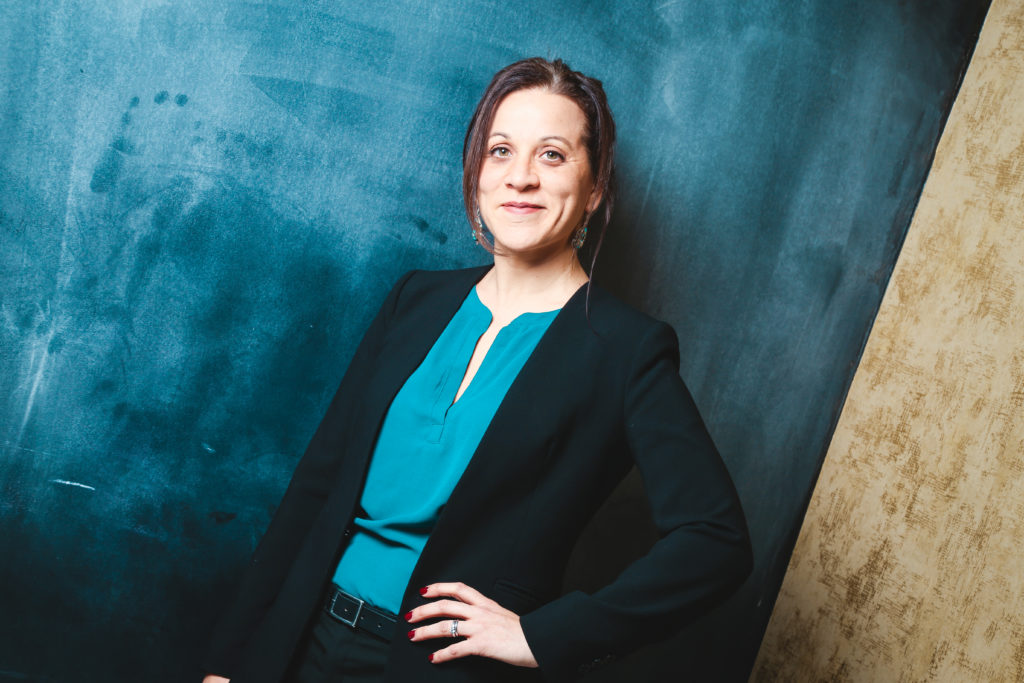Programme Development Manager Sustainable Food, Hivos Latin America San José, Costa Rica
My work in nutrition
I am part of the SUN Movement Civil Society Network (CSN) in Latin America and the Caribbean. I have been actively involved in developing the CSN in Costa Rica and I am one of the SUN CSN regional coordinators for Latin America and the Caribbean.
Food has always been my passion; the subject on which I built my academic and professional career. My driving force is the belief that I can contribute with my grain of sand to alleviating malnutrition and hunger in the world.
Ensuring enough food and good nutrition for everyone is not only a matter of human rights. The impact on the global economy of malnutrition and poor diets has been estimated to be US$3.5 trillion per year. Experts in the field have consistently stated that investing in nutrition is “smart economics”, and it has been demonstrated that investing in child nutrition is the most critical and economically sound intervention in the world.
So… What’s holding us back?
I think one of the problems lies in the fact that nutrition is still dealt with mainly through (under-financed) nutrition-specific interventions, implemented when the malnutrition problem is already present, and not always leading to positive results in the medium and long-term. But nutrition is inherently multi-sectoral, covering maternal and child health, infant and young child feeding, social protection, agriculture, WASH and many more. And we are not good at dealing with complex multi-sectoral issues, needing a systemic and “out of the box” approach.
One of the reasons I work in the nutrition sphere is because I think I can contribute with my experience, expertise and passion to embedding a food systems approach in the work aimed at improving diets, nutrition and health. I think this is necessary to address the structural causes of malnutrition and achieve positive long-term results in the nutrition sphere.
The role of women
Girls and women play a key role as producers of food, managers of natural resources, income earners, and main caregivers of their families and communities. Nevertheless, evidence shows that girls and women are generally at a disadvantage compared to men. Gender-based discrimination denies women and girls equitable access to land, information and productive resources, opportunities for formal employment, equal access to education and health care, equal pay, as well as the power of decision-making. Millions of women do essential work to produce the worlds’ food, yet remain poor.
Research has demonstrated that increasing women’s human capital is one of the most effective ways to reduce poverty. A slight increase in women’s assets, education and income has immediate positive multiplier effects such as increasing agricultural productivity and reducing child malnutrition. Empowering women and ensuring their equal access to resources and opportunities is a low-hanging fruit to scaling up nutrition.
It is very difficult to answer the sensitive and complex question about how being a woman has affected my career. On the one hand, I have experienced during my career almost all the obstacles documented in literature and storytelling about the challenges women face and gender-based discrimination (and sometimes violence) women experience at work: unequal pay, sexism in language, gender-based underestimation or undervaluing of my work, moral, psychological or economic pressure (of a macho-style boss) to impose power. At the same time (and because of this), many times in my career I have lacked the confidence to put forward my views and ideas, and I tend to constantly question and to be too harsh on myself when I make mistakes or feel I am under-performing.
Having said that, I think being a woman in a patriarchal world has made me strong, courageous, rigorous and vigilant. It has also radicalised me a bit, and I am currently a passionate advocate for girls and women’s rights, and I actively and open-heartedly support girls and women around me in many ways. And I really love doing that; it’s one of the things that makes me jump out of bed in the morning!
How can we elevate women? Well, first of all, give them the space in leadership circles! Data shows that women are underrepresented at all levels of decision-making worldwide, and achieving gender parity in political life is far off. But, as stated by Nancy Fraser, it is not only about redistribution, but also about recognition. Recognition is not superfluous, and it’s even more complex.
So how do we go about this?
I am currently involved in an initiative called “The Next Gen(d)eration of Leaders for a Well-Nourished World“, started by Dr. Corinna Hawkes and Dr Shu Wen Ng. We are a task team of 12 women working in the field of nutrition and food systems. The purpose of the initiative is to create a leadership movement towards a well-nourished world. We believe that transforming what the world eats will require transformations in leadership, shifting power to those who apply leadership practices deviating from the norm, prioritising social purpose, providing a nurturing space to listen, speak, show curiosity, find support, be able to make inevitable mistakes and lift others up. We want to see women achieve greater influence in decision-making towards a well-nourished world, as we believe many of them already apply these kinds of leadership practices, but they still need fewer obstacles and a nurturing space to thrive. We have already started to build that among us. It’s inspiring and exciting!


